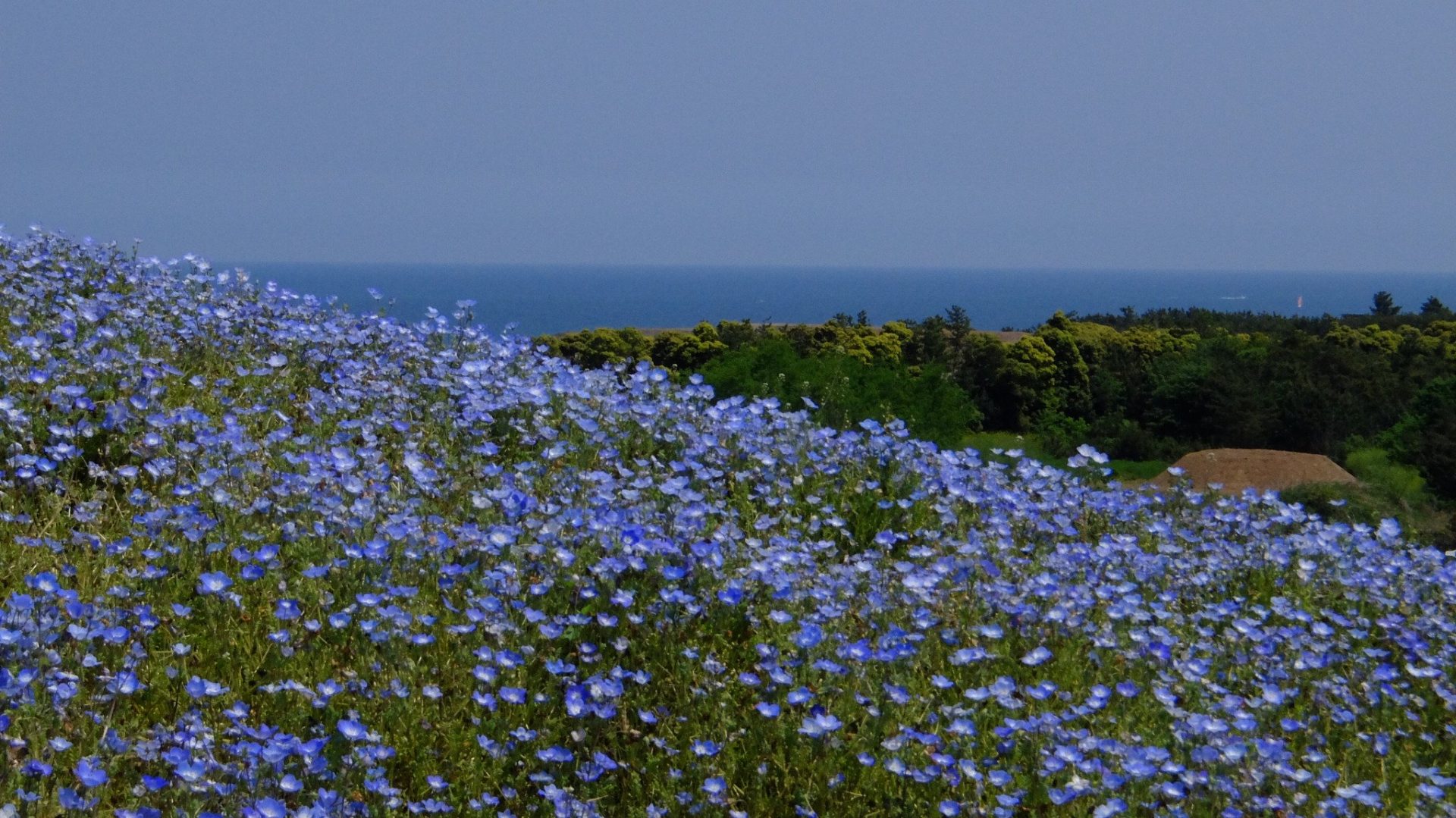MARABUT, Samar – Coconut trees that once stood proudly on the mountains at the southern tip of Samar island were strewn all over the barren landscape like matchsticks after Typhoon ‘Yolanda’ went island hopping in central Philippines last month.
Most coastal towns in Samar and Leyte affected by the worst typhoon that has hit the country rely on fishing and copra for livelihood. Along with their houses, the fishermen and coconut farmers also lost their fishing boats and hectares upon hectares of coconut trees.

Nothing is left of the coconut plantation (Marabut, Samar)
Engr. Judarico V. Sabit, Marabut’s municipal planning and development coordinator, said their town would not be short of coco lumber to build homes again but the problem is the lack of machine to cut down the trees. He said representatives of the Philippine Coconut Authority (PCA) have visited the area to see the state of the local industry after the typhoon ravaged the plantations.
“Ipapa-slice [ng PCA] yung mga [puno] ng niyog para gawing make-shift na bahay ng may-ari [ng mga puno],” Sabit said.
Given the extent of the damage to the plantations, Marabut is proposing to PCA to replace all the coconuts, standing or not,
Aside from fishing and copra, this town is also relying on tuba–a kind of coconut wine, which I haven’t tried yet–for livelihood.
Coconut farmers and fishermen augment their meager incomes with rice and rootcrops like cassava, gabi (yam), and banana. Save for the rootcrops, all the others have perished in the typhoon.
According to a November 20 press release from the Department of Agriculture:
“PCA has already committed 300 chains saw to be used for clearing operations. Each equipment will require two operators to be paid P300 each per day. A portable saw-mill will also be moved to the PCA yard in Tacloban.”
It’s tough if you’re poor. In Catbalogan, we were told of stories of families belonging to the middle class being able to escape the inhuman conditions in Tacloban and other neighboring towns via their own vehicles or paying for any other means of land transportation. Of Chinese businessmen calling up private choppers or what-have-you to airlift them out of the area. Of people with broken windshields, willing to pay P500/L just to be able to get out of the post-typhoon misery.
But what about those who cannot afford to even buy nails to fix their homes and are sleeping under canvasses?

Poblacion, Marabut, Samar
People of Marabut are left with nothing to pick up pieces of their lives. About 90 percent of the fishing boats here were lost. On the first week after ‘Yolanda’ hit, representatives from the Bureau of Fisheries and Aquatic Resources (BFAR) have come to the area to check the damage wrought by the typhoon but they have yet to hear whether they would be given new boats to help them get back on their feet.
“Walang trabaho, walang income. Syempre yung inaasahan mo nawala,” Sabit told me. “Kahit maliit ang nakukuha pero kung mahal ang bayad, narerecover din. Pero ito [after ‘Yolanda’]–wala.”
He said that each pump boat costs P15,000 but that is for the cost of the body only, without the motor. Paddle boats cost P2,000 but that can only be used in weaving in and out of mangrove areas and not suitable for fishing in deeper areas. Fishing nets cost P20,000 each unit.
At those prices, going back to fishing almost seemed impossible for Marabut fishermen.
“Nagbigay na ang DA dati ng motorized banca, bago dumating yung bagyo. Tapos bumagyo…” Sabit said in a voice that betrayed his inner thought: “Sayang!”.
My husband, who grew up in Catbalogan, talked to a kababayan manufacturer of fiberglass pumpboats and said fiberglass boats can be made for P10,000 only, whereas boats made from marine plywood cost P15,000 to make. The boatmaker said the ones made of fiberglass last much longer than the wooden versions.
This boatmaker confided that he already saw the specifications set by the government but “they were all wrong”, based from his professional wisdom. That’s why he would rather make boats for the private groups who would want to donate to fellow Warays than follow the government specs.
There are kind-hearted private groups out there who are now raising funds to help these fishermen get boats.
Post-script:
MANILA, December 16 – A member of the Economic Journalists Association of the Philippines (EJAP) has been talking with BFAR about the distribution of pumpboats. He said BFAR cannot accept private money donations but can direct donors to non-government organizations that can help make and distribute these boats. According to the agency, the boats will be made in SOCCSKSARGEN ( South Cotabato, Cotabato, Sultan Kudarat, Sarangani and General Santos City) area then the NGOs will help identify the areas for distribution.
